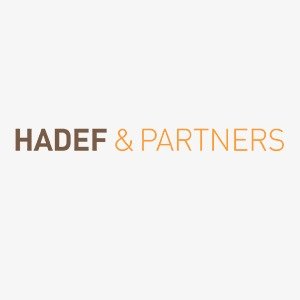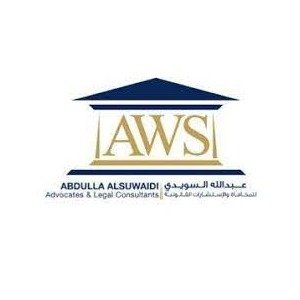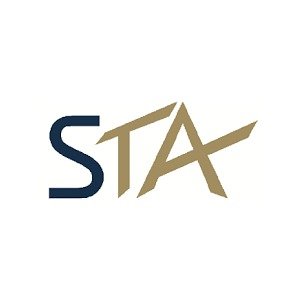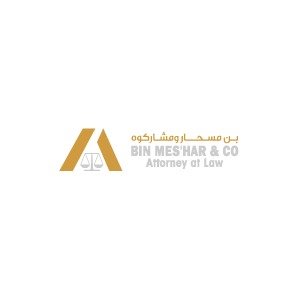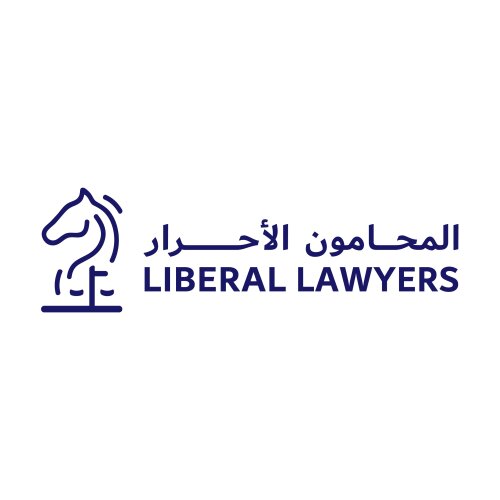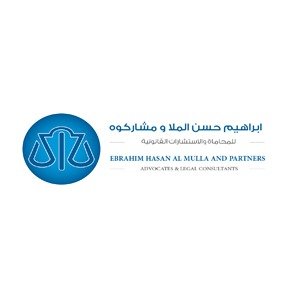Best Structured Finance Lawyers in Abu Dhabi
Share your needs with us, get contacted by law firms.
Free. Takes 2 min.
List of the best lawyers in Abu Dhabi, United Arab Emirates

The Black Robe For Legal Consultancy & Debit Collection
1 hour Free ConsultationAbout Structured Finance Law in Abu Dhabi, United Arab Emirates
Structured finance is a sophisticated area of finance and law that involves the use of complex financial instruments to raise capital, manage risk, and create tailored solutions for unique financial needs. In Abu Dhabi, which is one of the most important financial hubs of the UAE and the broader Middle East, structured finance transactions are at the core of large-scale commercial, infrastructure, and real estate projects. This area of law governs transactions such as securitizations, syndicated loans, project finance, Islamic finance products, and asset-backed securities, ensuring regulatory compliance and mitigating potential risks for all involved parties.
Why You May Need a Lawyer
Engaging in structured finance in Abu Dhabi involves navigating complex regulatory frameworks and drafting intricate agreements. You may need a lawyer if you are:
- Arranging a significant financing deal for a commercial, infrastructure, or real estate project
- Participating as a lender or borrower in a syndicated loan transaction
- Investing in or issuing asset-backed securities or other structured products
- Involved in a capital markets transaction that requires compliance with local and international regulations
- Seeking to comply with Sharia (Islamic finance) requirements in structured products
- Restructuring existing debt using structured finance tools
- Negotiating cross-border deals involving Abu Dhabi entities or assets
Lawyers experienced in Abu Dhabi structured finance can help you assess regulatory requirements, conduct due diligence, draft contracts, negotiate transaction terms, and safeguard your interests throughout the process.
Local Laws Overview
Structured finance in Abu Dhabi operates under a combination of federal UAE laws and Emirate-level regulations. The following laws and regulatory bodies are particularly relevant:
- UAE Federal Laws: Including the Commercial Companies Law, Civil Transactions Law, and bankruptcy legislation that set the legal framework for commercial transactions and insolvency issues.
- Abu Dhabi Global Market (ADGM): An international financial center with its own independent regulatory and judicial system, where many structured finance deals take place due to its common law framework.
- Central Bank of the UAE: Regulates the banking and finance sector, including licensing and compliance requirements for transactions.
- Securities and Commodities Authority (SCA): Oversees the issuance and trading of securities, including structured financial products.
- Sharia Compliance: For Islamic finance transactions, compliance with Sharia law is overseen by boards and regulatory bodies to ensure products are acceptable under Islamic law.
All structured finance transactions must adhere to anti-money laundering (AML) and counter-terrorism financing (CTF) regulations, and participants should be aware of evolving local and international best practices.
Frequently Asked Questions
What is structured finance?
Structured finance refers to complex financial arrangements that go beyond traditional borrowing and lending, using customized products like securitizations, derivatives, and asset-backed securities to meet specific financing needs and risk profiles.
Does Abu Dhabi have special rules for structured finance?
Yes - Abu Dhabi applies a combination of federal UAE laws, local regulations, and if the transaction falls within the ADGM, common law principles. There may also be specific rules for Islamic finance products.
What regulatory bodies oversee structured finance in Abu Dhabi?
Depending on the nature and location of the transaction, key regulators include the Central Bank of the UAE, Securities and Commodities Authority (SCA), ADGM Financial Services Regulatory Authority, and, in Islamic finance matters, Sharia supervisory boards.
What kinds of projects typically use structured finance in Abu Dhabi?
Large infrastructure projects, energy developments, commercial property investments, public-private partnerships, and major corporate debt refinancing often use structured finance arrangements.
Are Islamic (Sharia-compliant) structured finance products available?
Absolutely. Abu Dhabi is a regional leader in Islamic finance, offering a variety of Sharia-compliant structured products such as sukuk (Islamic bonds), ijara, and murabaha structures, all subject to ethical and legal standards of Islamic law.
Can foreign entities participate in structured finance deals in Abu Dhabi?
Yes, foreign participation is common, subject to local ownership, banking, and securities regulations. Many cross-border transactions are structured via ADGM to benefit from its international legal framework.
What are some common legal risks in structured finance transactions?
Risks include regulatory non-compliance, improper documentation, enforceability issues, cross-border legal conflicts, Sharia compliance for Islamic deals, and insolvency or counterparty risks.
Is it necessary to have legal counsel for structured finance transactions?
Given the complexity and high value of these transactions, legal counsel is considered essential to ensure compliance, manage risk, negotiate terms, and protect your interests.
How do structured finance laws accommodate securitizations in Abu Dhabi?
Securitizations in Abu Dhabi are subject to strict regulatory oversight, including licensing requirements, disclosure obligations, and investor protection rules implemented by SCA or ADGM’s regulatory authority.
What are the key steps in completing a structured finance deal in Abu Dhabi?
Key steps include conducting due diligence, structuring the transaction, drafting and negotiating agreements, regulatory compliance filings, and post-closing monitoring of covenants and reporting.
Additional Resources
Individuals and businesses seeking information or advice on structured finance in Abu Dhabi can refer to the following resources:
- Abu Dhabi Global Market (ADGM) - For transactions within ADGM’s jurisdiction
- Central Bank of the UAE - For banking and financial services regulations
- Securities and Commodities Authority (SCA) - For securities laws and offerings
- Abu Dhabi Department of Economic Development - For licensing and regulatory queries
- Local and international law firms specializing in structured finance and capital markets
- Professional bodies such as the Emirates Securities and Investment Authority
Next Steps
If you are considering entering into a structured finance transaction in Abu Dhabi, you should:
- Define your financial objectives and gather all relevant details about the assets or projects involved
- Consult with a legal advisor experienced in Abu Dhabi and UAE financial regulations, particularly if your situation involves cross-border elements or Islamic finance
- Prepare for an initial meeting by collecting documents and outlining key questions or concerns for your lawyer
- Engage a reputable law firm or lawyer with expertise in structured finance to guide you through the legal, regulatory, and transactional steps
- Ensure compliance with all local laws, regulatory requirements, and industry best practices to mitigate risks and achieve a successful transaction
Professional legal guidance is essential for safeguarding your interests and advancing your goals in the complex and evolving environment of structured finance in Abu Dhabi.
Lawzana helps you find the best lawyers and law firms in Abu Dhabi through a curated and pre-screened list of qualified legal professionals. Our platform offers rankings and detailed profiles of attorneys and law firms, allowing you to compare based on practice areas, including Structured Finance, experience, and client feedback.
Each profile includes a description of the firm's areas of practice, client reviews, team members and partners, year of establishment, spoken languages, office locations, contact information, social media presence, and any published articles or resources. Most firms on our platform speak English and are experienced in both local and international legal matters.
Get a quote from top-rated law firms in Abu Dhabi, United Arab Emirates — quickly, securely, and without unnecessary hassle.
Disclaimer:
The information provided on this page is for general informational purposes only and does not constitute legal advice. While we strive to ensure the accuracy and relevance of the content, legal information may change over time, and interpretations of the law can vary. You should always consult with a qualified legal professional for advice specific to your situation.
We disclaim all liability for actions taken or not taken based on the content of this page. If you believe any information is incorrect or outdated, please contact us, and we will review and update it where appropriate.




